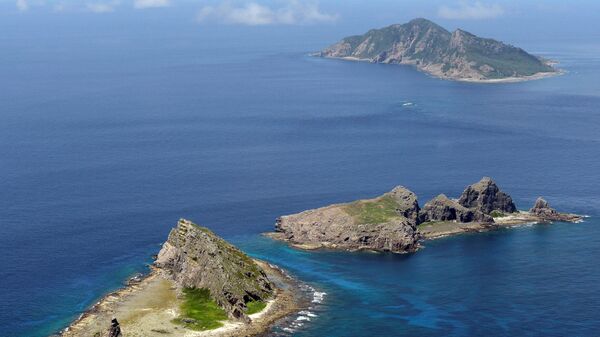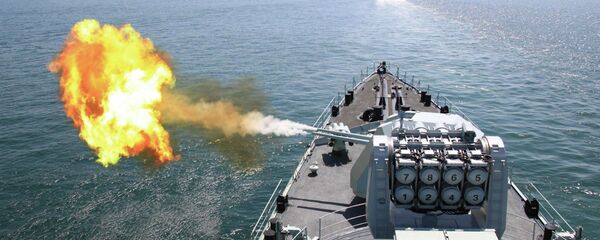As of late however, the ties between the three nations have been dominated by territorial issues. While Japan may suspect that by forming closer bilateral ties Russia and China are pursuing some sort of anti-Japanese agenda, in fact, Moscow doesn’t seek to become a part of any bloc in the region.
Dmitry Streltsov, an expert in Japanese politics and foreign policy, told Sputnik that Russia adheres to a simple principle in foreign policy: avoid making alliances simply for the sake of opposing someone, and instead seek a balanced approach to all conflict situations. Therefore, Moscow is not ready to support Beijing in its territorial dispute with Tokyo over the Senkaku Islands (known as the Diaoyu Islands in China).
"As far as I know, the Chinese side repeatedly proposed an informal deal to Russia, asking it to support Beijing in the territorial dispute with Japan, and in exchange offering to support Russia in the Kuril Islands issue (right now China essentially maintains a pro-Japanese stance on that matter). However, Russia reacted negatively to that proposal, because its principle stance is neutrality," Streltsov said.
Recently, Japanese media outlets and government officials began discussing the possibility of forming closer ties with Russia in order to contain China’s ascendance. However, it appears that Russia is unlikely to gain anything if it attempts to mediate the disputes between China and Japan.
"Both sides are firmly entrenched in their stances: Japan insists that there’s no territorial dispute while China strives to ensure that this issue gets recognized as a territorial dispute. I believe that they won’t budge, no matter who attempts to act as a mediator," he remarked.
Streltsov also pointed out that Russia does not oppose the defense cooperation between the United States and Japan, and that during the last few years Moscow has criticized only one initiative of theirs – the deployment of the THAAD missile defense system in South Korea.
"Russia opposes the ballistic missile defense systems because they’re not subjected to international regulations and, established by one side, can potentially alter the balance of power in the region and create a new threat to international security," Streltsov said.
According to him, Russia is interested, first and foremost, in maintaining international regulation over the military-political situation and ‘arms race’ in the region. What Russia needs is stability and mutual security guarantees in Asia.
"While such a name is not currently being used, what Russia stands for is some sort of a collective security system for the Asian-Pacific region. Therefore Russia is interested in maintaining dialogue on that issue with all countries involved, seeking to turn it into a multilateral process. In that respect, Russia possesses great potential, both as a mediator and as an author of such a security system. Unfortunately, the US-Chinese confrontation has resulted in a new bipolarity being formed in Eastern Asia, and this process cannot be reversed," Streltsov concluded.



